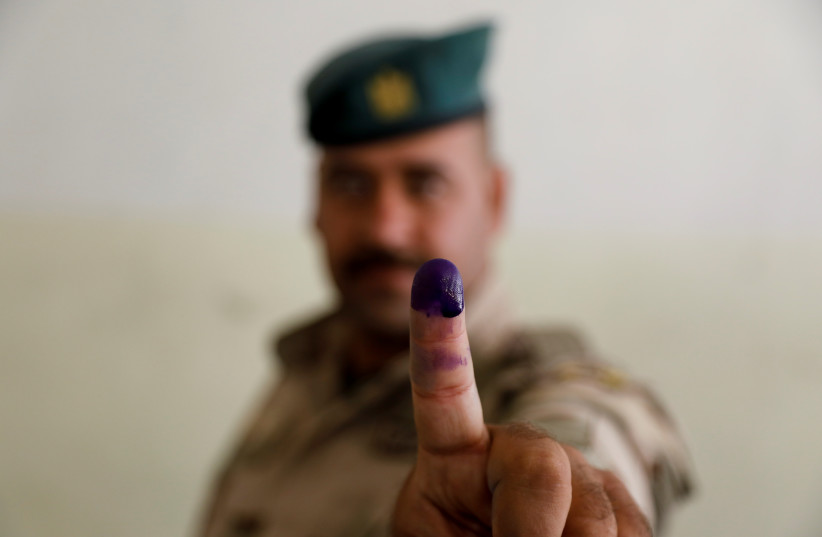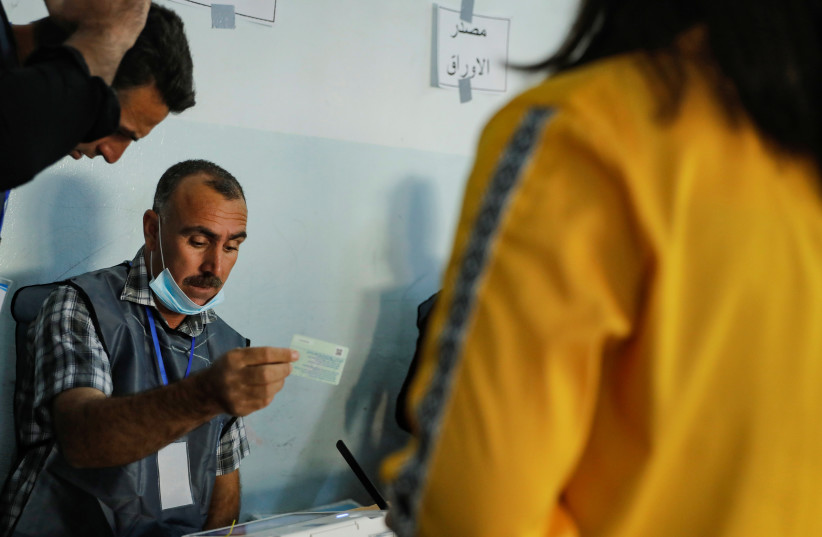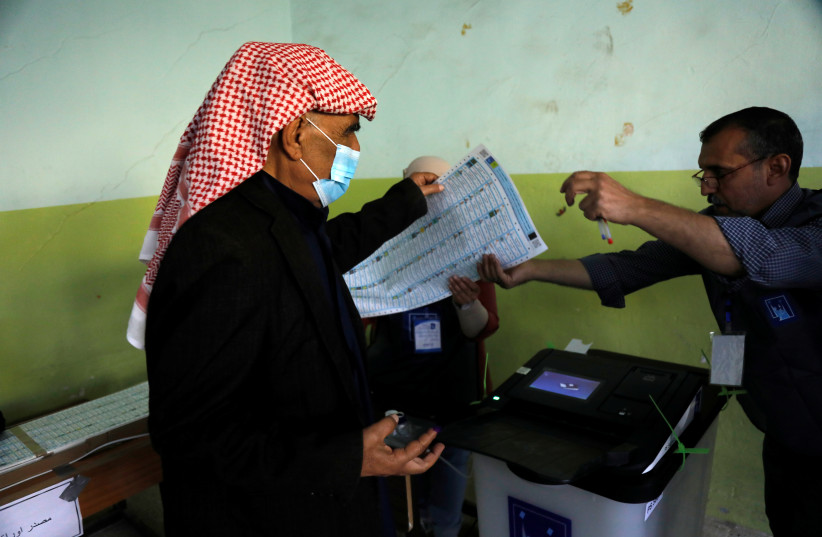Iraqis were voting on Sunday in a parliamentary election with a low turnout, after many lost faith in the democratic system brought in by the US-led invasion of 2003.
The established, Shi'ite Islamist-dominated ruling elite whose most powerful parties have armed wings is expected to sweep the vote, with the movement led by populist Shi'ite cleric Moqtada al-Sadr, who opposes all foreign interference and whose main rivals are Iran-allied Shi'ite groups, seen emerging as parliament's biggest faction.
Such a result would not dramatically alter the balance of power in Iraq or the wider Middle East, say Iraqi officials, foreign diplomats and analysts, but for Iraqis it could mean that a former insurgency leader and conservative Islamist could increase his sway over the government.

In Baghdad's Sadr City, a polling station set up in a girls’ school saw a slow but steady trickle of voters.
Election volunteer Hamid Majid, 24, said he had voted for his old school teacher, a candidate for the Sadrists.
“She educated many of us in the area so all the young people are voting for her. It’s the time for the Sadrist Movement. The people are with them,” Majid said.
Two electoral commission officials told Reuters that nationwide turnout of eligible voters was 19 percent by midday. Turnout was 44.5 percent in the last election in 2018. Polls close at 6 p.m. (1500 GMT).
The election is being held several months early under a new law designed to help independent candidates - a response to mass anti-government protests two years ago.
High school teacher Abdul Ameer Hassan al-Saadi said he boycotted the election.
”I lost my 17-year-old son Hussain after he got killed by a tear gas canister fired by police during Baghdad protests," said al-Saadi, whose house is close to a polling station in the mainly Shi'ite Baghdad district of Karrada.
"I will not vote for killers and corrupt politicians because the wound inside me and his mother we suffered after losing our boy is still bleeding."
The chief Iraq election observer of the European Union, Viola von Cramon, said the relatively low turnout means a lot.
"This is a clear, of course a political signal and one can only hope that it will be heard by the politicians and by the political elite of Iraq," she told reporters.
FOREIGN INFLUENCE
Nonetheless, some Iraqis were keen to vote in what is Iraq's fifth parliamentary vote since 2003 - and are hopeful of change. In the northern city of Kirkuk, Abu Abdullah said he arrived to vote an hour before polling stations opened.
"We expect the situation to improve significantly." he said.
At least 167 parties and more than 3,200 candidates are competing for parliament's 329 seats, according to the election commission. Iraqi elections are often followed by protracted talks over a president, a prime minister and a cabinet.
Prime Minister Mustafa al-Kadhimi is not running for election but the negotiations after the vote could yet see him get a second term. Kadhimi, who is viewed as Western-friendly, has no party to back him.
The Kurds have two main parties that rule the autonomous Kurdistan region, and Sunnis this time have two main blocs.
Kadhimi told reporters as he cast his ballot: “I call on Iraq people: there’s still time. Go out and vote for Iraq and vote for your future.”
Kadhimi's government called the vote early in response to protests in 2019 that toppled the previous administration.
Protesters' demands included the removal of a ruling elite most Iraqis view as corrupt. The demonstrations were brutally suppressed and some 600 people were killed over several months.
Iraq is safer than it has been for years and violent sectarianism is less present since Iraq vanquished the Sunni ultra-hardline Islamic State in 2017 with the help of an international military coalition and Iran. But corruption and mismanagement has meant many of Iraq's 40 million people lack jobs, healthcare, education and electricity.
"Why won't I vote? Because I have no faith in people. Those we elected, what have they done?," asked Mohammed Hassan, a resident of Basra. "Look at the garbage, the filth ... The previous government's projects, where are they?"
The United States, Gulf Arab countries and Israel on one side and Iran on the other compete for influence in Iraq, which has provided a gateway for Tehran to support militia proxies in Syria and Lebanon.
The 2003 invasion toppled Saddam Hussein, a Sunni Muslim, and catapulted to power the country’s majority Shi’ites and the Kurds, who were oppressed under Saddam. It unleashed years of sectarian violence, including the takeover of a third of the country by Islamic State between 2014 and 2017.

Washington is removing all US combat troops as part of an agreement with the Iraqi government, although the move keeps most of its 2,500 troops in the country in non-combat roles, according to US officials.
That decision came under pressure from Iraq’s dominant Shi’ite parties, many of them backed by Iran, which called for the removal of US forces after the US killing of top Iranian military commander Qasem Soleimani in Baghdad in 2020.
The populist Shi’ite cleric Moqtada al-Sadr, who opposes all foreign influence and is a rival of the Iran-aligned Shi’ite groups, is expected to come first in the election. He has also called for foreign troops to withdraw.

